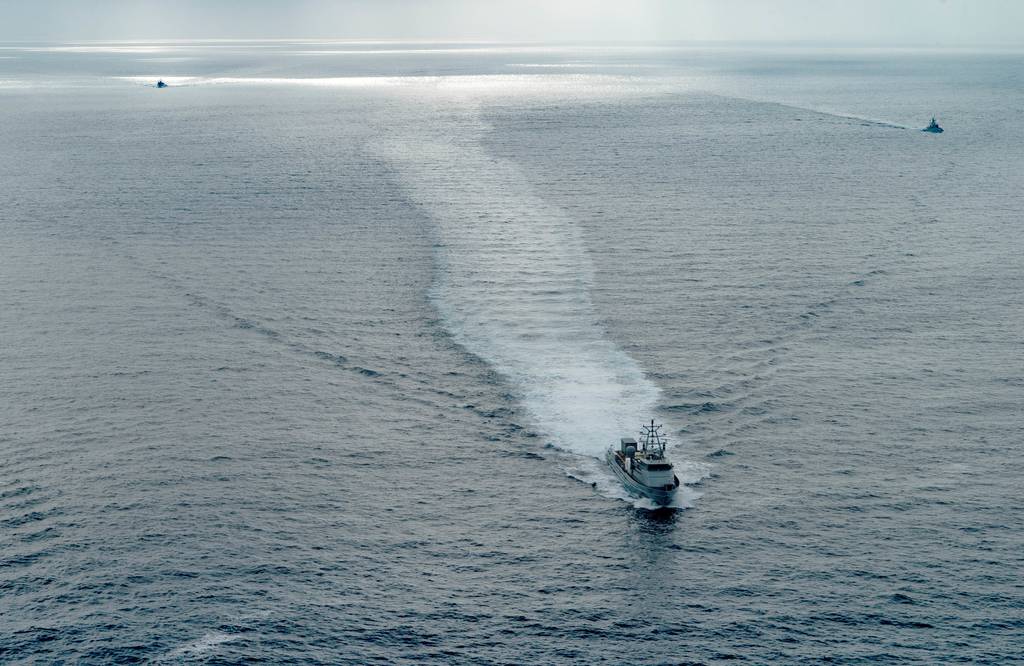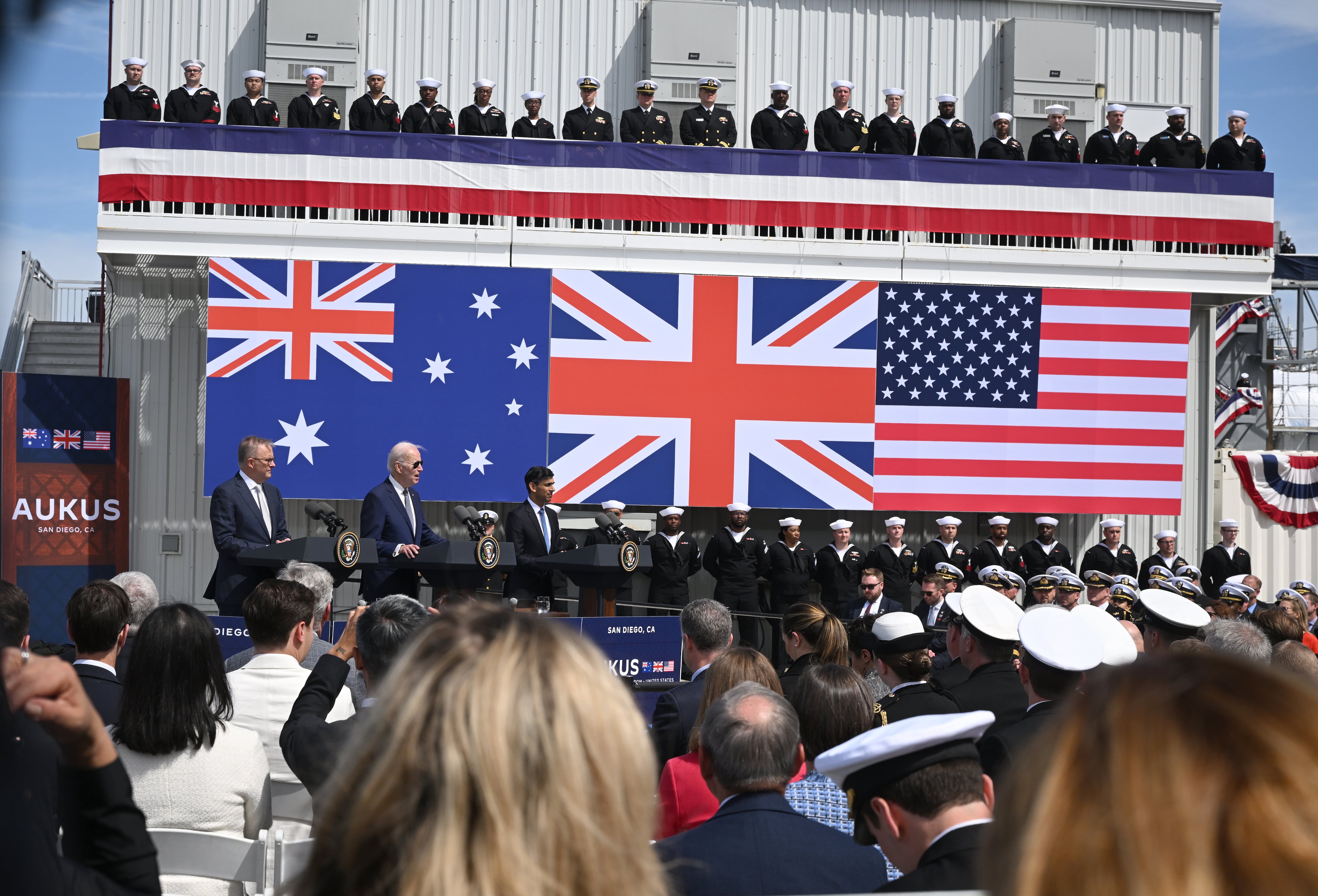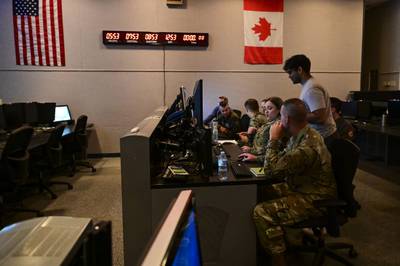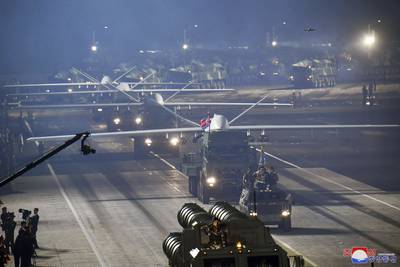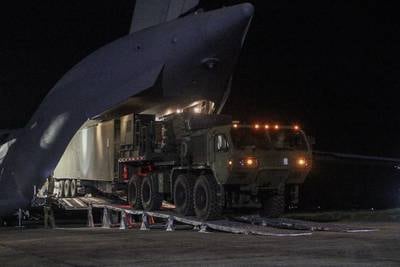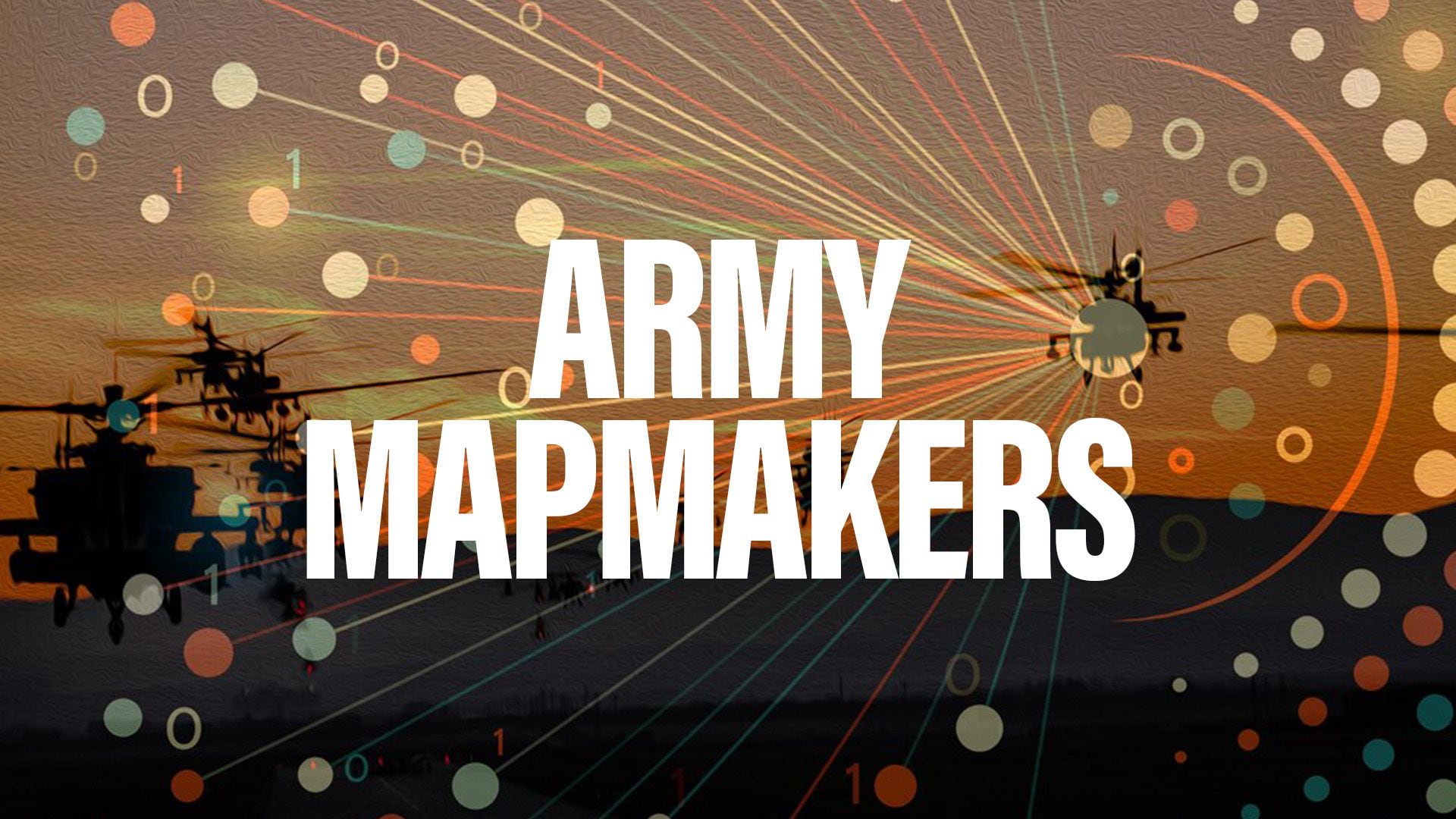WASHINGTON — The U.S. Navy requested $192 million to continue with Project Overmatch, its clandestine effort to seamlessly connect people, vessels and sensors, fiscal 2024 budget documents show.
The research and development request, unveiled March 13, is slightly less than the $195 million the service sought for FY23. It is also less than the $226 million eventually enacted for that fiscal year.
Budget documents did not explain the reason for the dip. The Navy did not respond to an inquiry made Monday about the differences.
Project Overmatch is the Navy’s contribution to Joint All-Domain Command and Control, or JADC2, the Pentagon’s multibillion-dollar push to interlink disparate forces across land, air, sea, space and cyberspace. Forging such links, defense officials say, will allow the U.S. to better address foreign aggression, namely from China and Russia.
“Our request demonstrates ... commitment to providing a ready, modernized and capable naval force, a force that continues to be the nation’s primary instrument of sea control, both now and into the future,” Erik Raven, undersecretary of the Navy, said at a briefing Monday.
Detailed information about Project Overmatch is rarely shared with the public. Both military leaders and outside analysts cite Beijing’s eager ears and eyes as reason to keep development cloaked in secrecy.
The service plans to deploy a carrier strike group with products of Project Overmatch — namely advanced networking capabilities — this year. Rear Adm. Doug Small, who leads both Naval Information Warfare Systems Command and is spearheading Project Overmatch, in a November interview described the milestone as the “starting gun.”
Additional deployments on additional strike groups are expected to follow.
Small previously said Project Overmatch is “absolutely on track,” noting the timelines to which he and others are held are “pretty aggressive.”
Colin Demarest was a reporter at C4ISRNET, where he covered military networks, cyber and IT. Colin had previously covered the Department of Energy and its National Nuclear Security Administration — namely Cold War cleanup and nuclear weapons development — for a daily newspaper in South Carolina. Colin is also an award-winning photographer.
